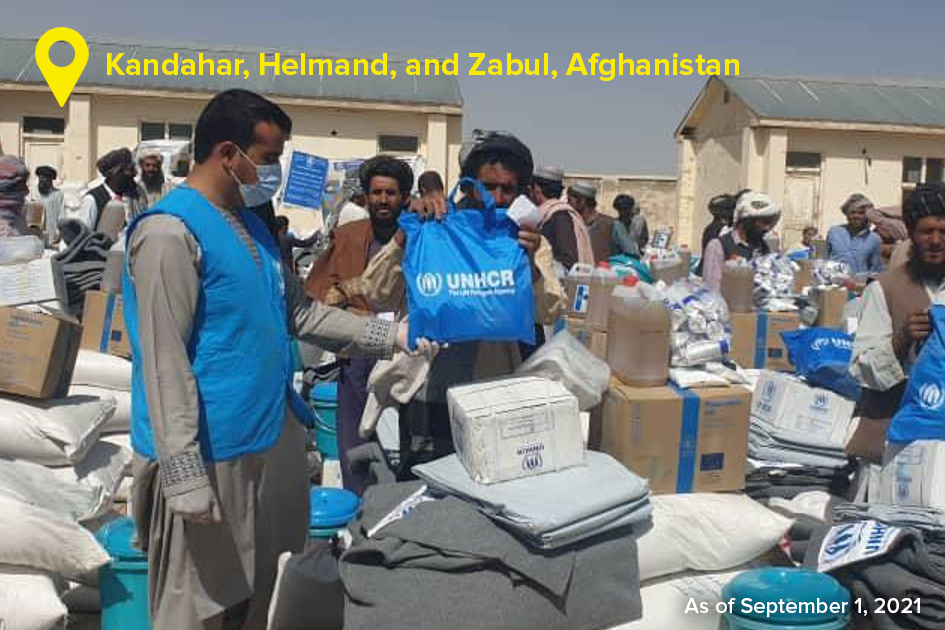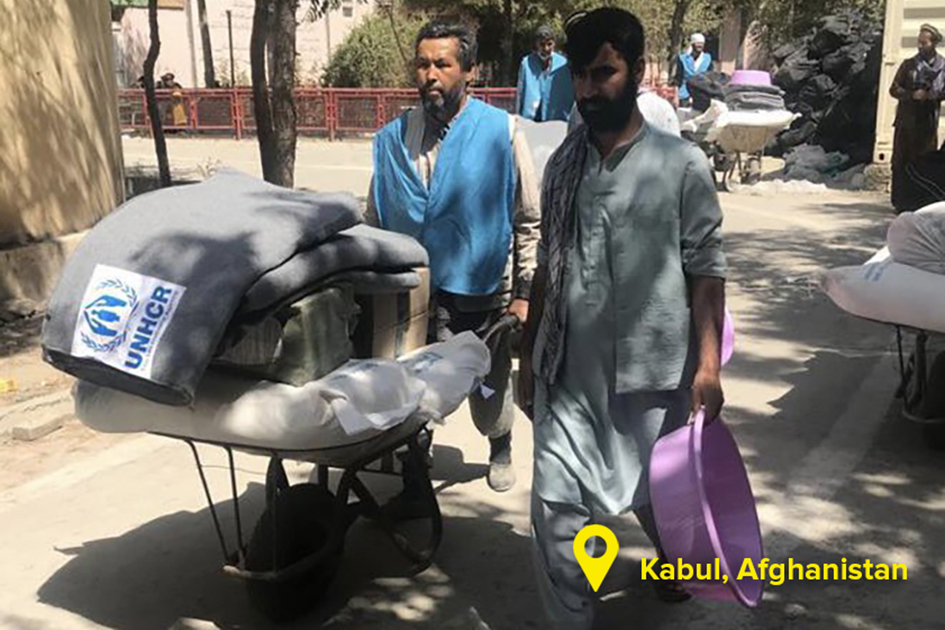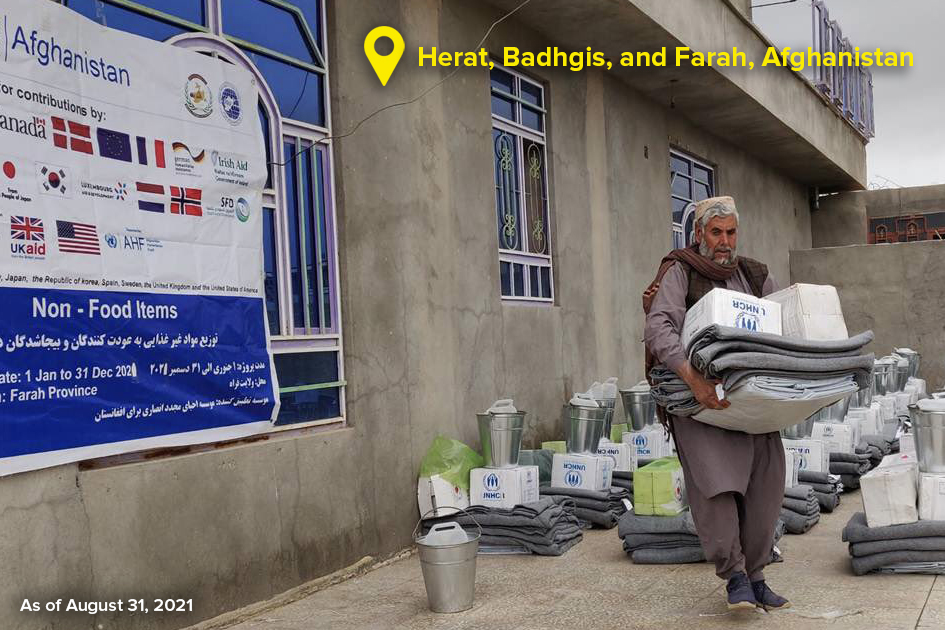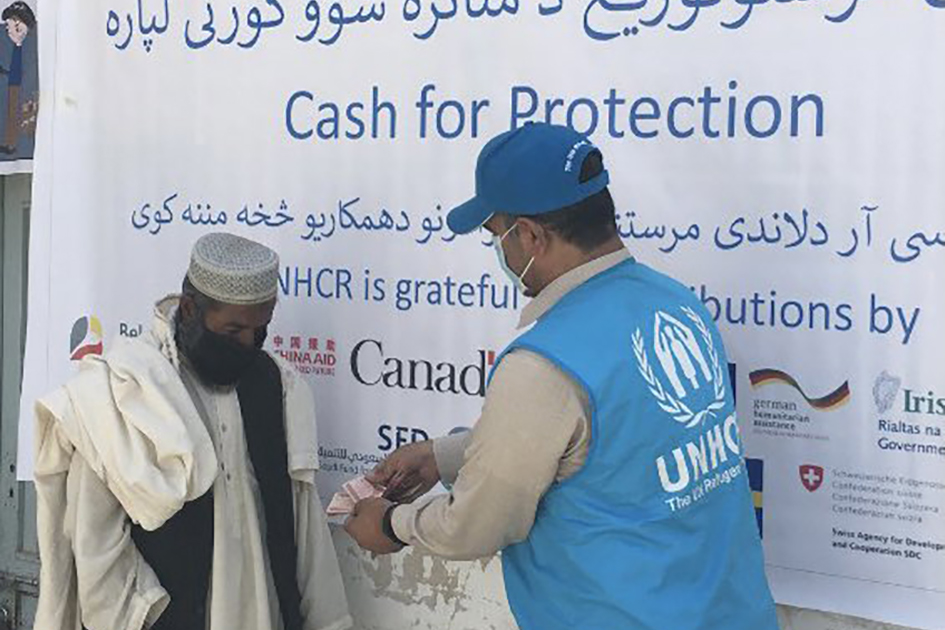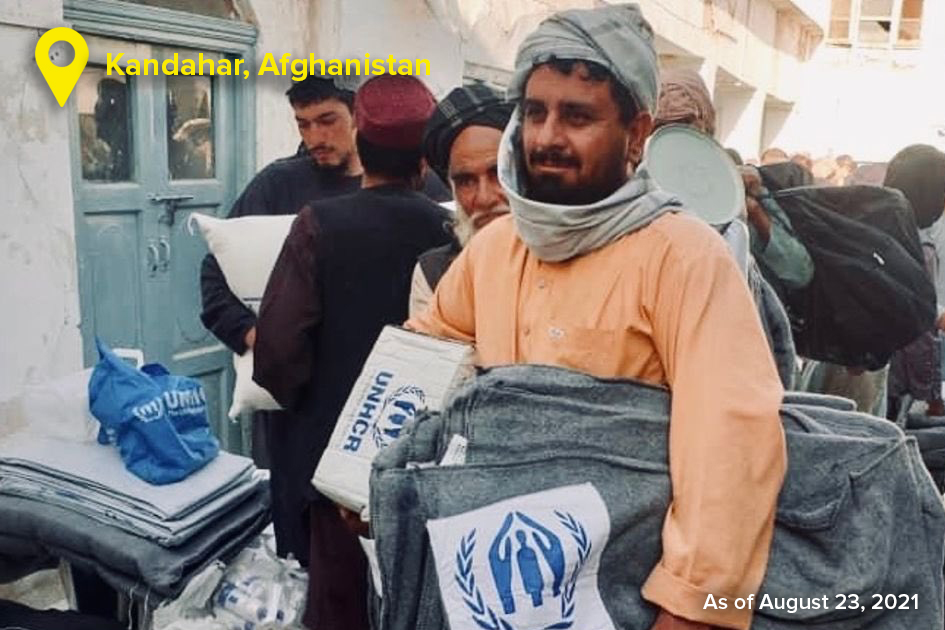Hundreds of families made homeless by the recent devastating earthquake (June 2022)
The 5.9 magnitude earthquake, that hit early morning on 22 June 2022, struck in a region where people are already extremely vulnerable. As of 30 June, it is estimated that at least 70% of the houses in the high impact areas are damaged or destroyed, leaving many without shelter and sleeping in the open – as many as 250,000 people (36,000 households) are estimated to have been affected. To protect families who have lost everything, emergency shelter is an immediate priority.

As of 31 July 2022, UNHCR and partners had assisted 560,000 people in 2022. The assistance included, among other things:
- Cash assistance provided for 296,000 individuals
- In-kind assistance such as household core relief item kits provided for 263,000 individuals
- 2.5 million people in 55 Priority Areas of Return and Reintegration benefiting from infrastructure and services provided by UNHCR
- Assessment of 135,000 people in more than 19,000 households
- Livelihoods programmes like poultry raising, computer training, coding classes, tailoring classes, and midwifery training courses that are changing lives for hundreds of women
- Cash-for-work programmes like canal cleaning providing thousands of men with income to support their families

UNHCR’s response to the growing needs of Afghans
The situation in the country has challenged the resilience of the Afghan people, for whom it is difficult to meet their basic needs. In the coming months, the vulnerability of Afghans will further be exacerbated by harsh winter conditions in the country. With makeshift shelters, protection against the cold is much more urgent and the need for life-saving assistance is raised to a heighted alert. Compounded by the challenges of conflict and COVID-19 pandemic, forcibly displaced Afghan people are at their most vulnerable.
The international community has come to aid Afghanistan in their dire need. As the leading UN agency protecting people forced to flee, UNHCR is directly responding by providing shelter and emergency supplies and reinforcing the protection of those affected through a holistic coordinated response, working closely with other humanitarian partners.

“As living conditions in Afghanistan worsen, UNHCR, with other humanitarian organizations, is stepping up emergency aid programmes for thousands of people. Cash, tents, hygiene kits and other relief items are distributed daily to women and men in need including displaced people.”
– Filippo Grandi, UN High Commissioner for Refugees
Preventing the spread of COVID-19 remains a priority. To help reduce the risk of as much as possible, UNHCR is providing buckets and jerry cans in its relief kits to displaced families. These supplies are especially important in areas where access to clean water is difficult. UNHCR has also established hand-washing stations and distributed hygiene kits including soap and face masks. In addition, we are providing emergency cash support to help displaced families mitigate the socio-economic impact of the pandemic.
UNHCR has also undertaken protection monitoring covering 32 provinces in 2021 and as part of the broader UN effort, helped assess the needs of almost 400,000 internally displaced people since the start of the year. But more humanitarian aid is urgently needed. We are ramping up our response, and we need support to protect and assist people forced to flee.
Why do we need to act with urgency?
This latest wave of violence comes on top of recurrent natural disasters such as the current devastating drought. The COVID-19 pandemic has also had far-reaching health impacts as well as socio-economic repercussions. Less than 4 per cent of the population is fully vaccinated.
Afghans already constitute one of the world’s largest refugee populations worldwide. Some 90 per cent of Afghan refugees are hosted in neighbouring Iran and Pakistan, with more than 2.2 million registered in the two countries. Another 3 million people were already displaced inside the country before new fighting broke out this year.
Afghanistan’s children are growing up amid this crisis. Some 65 per cent of the Afghan people – in and outside of Afghanistan – are children and young people, anxious about their future in the face of insecurity and economic challenges.
The resilience of Afghan families is being stretched to breaking point. The situation in Afghanistan was already complex, and failure to resolve the current instability will lead to new displacement.
“I hope that the focus on Afghanistan will continue and that it will not go away after a few weeks. UNHCR is here for the long run.”
— Caroline Van Buren, UNHCR Representative in Afghanistan
How can the private sector help in the response?
The role of the private sector in responding to this escalating humanitarian crisis is nothing less than critical. Thanks to the quick action and compassion of our private sector partners, we are already making a difference on the ground. This year so far, UNHCR has provided food, shelter, cash, hygiene, sanitary kits and other lifesaving assistance, together with partners, to more than 560,000 people in Afghanistan. The private sector plays a crucial role in supporting all emergencies, not only in terms of mobilizing financial resources but also in terms of expertise and talents, and flexible funding allows us to respond in a timely and effective way as well as to prepare, prevent and respond to any new emergency within the emergency that may occur in the future.
But needs remain. Your continued support to displaced people is as important today as it has ever been. We are extremely grateful to you for having responded with urgency and empathy to the needs of vulnerable Afghans at a time when lifesaving support is needed the most.
To find the latest figures, please visit our Data Portal. You can also read the latest updates on our Global Focus website.

